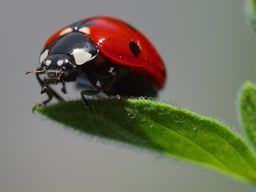
Five years ago, I was invited to speak at BugFest, the annual insect extravaganza at the North Carolina Museum of Natural Sciences, about my book, Buzz: The Intimate Bond Between Humans and Insects. One day before the Fest, (which features an arthropod Olympics, butterfly gardening and a “Cafe Insecta”) I was a guest on North Carolina Public Radio’s program The State of Things. Together with my fellow speaker, the museum’s Arthropod Zoo curator Bill Reynolds, I talked about all the benefits insects bring to the world: they pollinate many of our crops, decompose plant and animal matter, eat pests that destroy our harvests, and serve as food for birds, fish, reptiles, frogs, and mammals, including ourselves. (Yes, even the Bible permits the consumption of selected “flying creeping things,” such as locusts and grasshoppers.)
After we had spoken, radio host Melinda Penkava invited callers to add their comments. One by one, each caller asked for advice on how to kill insects and other leggy bugs: mosquitoes, roaches, and ticks. I was bemused: I’m not an exterminator, and besides, had anyone been listening to what we had said? Apparently not: prejudice against “flying creeping things,” runs deep. I can understand why: I myself am a martyr to mosquitoes, and I’m not too keen on seeing cockroaches scrambling across my kitchen counter.
Nevertheless, I felt an urge to write this column in response to my dearly respected and right honorable fellow-blogger Ann, who is dubious about the great web of life in which insects, parasites, and yes, Ann, play their parts. She’s not alone: I’ve been asked more than once why insects such as mosquitoes exist, and what good are they anyway? By which the questioner means, “what good are they to us?” To which I answer: insects didn’t evolve to serve us. In fact, they evolved long before we did: about 400 million years ago, to be exact.
It’s a good thing insects evolved when they did, because they were there in time to pollinate flowering plants, which appeared on earth about 130 million years ago. And who doesn’t love bees or butterflies, those busy mediators of sexual reproduction in plants? By one estimate, about 80 percent of the world’s 94 major food crops–including apples and carrots and pumpkins and plums–are pollinated by insects, nearly all of them species of bee.
Ah yes, I hear you say, but who could love a cockroach, unless it was its mother? To which I reply: even roaches have their place in the world, and that’s the rainforest floor, not my dishwasher, thank you very much. Species such as the Madagascar Hissing Cockroach, a 3-inch-long beastie with teeth in its gut, eat dead plants and leaves, recycling their nutrients back into the soil. Roaches evolved in hot climates, which could explain why they spend their daylight hours sequestered in warm, dark, moist and secluded sites under refrigerators and stoves, and their night hours scavenging starches and flakes of dry skin.
What of the lowly mosquito? Yes, it transmits malaria, a parasitic disease that killed one million people in 2008, most of them children in Africa. That’s a scourge that we cannot ignore. But mosquitoes and their eggs also serve as food for fish and birds, and some species pollinate orchids, including the splendidly named blunt-leaved bog orchid, a humble plant that lives in fens, swamps and wet woods. So the next time you feel a little superior to these slender creatures (an easy impulse, I admit) just remember what the Talmud says: “Why was the mosquito created before man? So that if man becomes haughty he can be deflated by being told: ‘the mosquito came before you.'”
Image courtesy of Jon Sullivan (PD-PDphoto.org]
Are you entirely sure the Talmud says that, Josie? At the moment, I have no counter-argument, probably because one doesn’t exist, but I’ll work on it anyway.
Ann,
I’m relying on my father, a Talmud scholar, who gave me the quote. I have to admit I have no idea which section of the Talmud it comes from. But I can find out!
I know nothing about the Talmud that doesn’t come via Google. It was the “mosquito came before you” part — it struck me as either anachronistic or prescient.
Yes, of course you’re right, silly of me not to remember. Yes, it sounds like Archy & Mehitabel.
It’s probably a fairly common sentiment. For example, this poem by Stephen Crane:
A man said to the universe:
“Sir, I exist!”
“However,” replied the universe,
The fact has not created in me
A sense of obligation.”